David vs. Goliath: How Dental Startups Can Triumph Over Corporate Dentistry
Are you an associate dentist contemplating the path to practice


If you’re like most associate dentists, you’ve likely considered the many benefits of owning a dental office. But just as you let your mind wander to the dream, your brain reminds you of the risks and costs. The dreaded questions kick in.
These are natural questions to ponder. There’s a lot on the line. Your family, future, finances, career, and reputation are just a few things you risk. But there is HOPE!
While opening a dental practice can be scary and daunting and come with many risks and questions, the short answer is–you CAN do it.
But here’s the real question: Should you?
If you read this and come up with a resounding yes, you will also realize that you can build more than a practice. You can own a highly successful dental startup.
My name is Jayme Amos, CEO of Ideal Practices. My team and I have partnered with hundreds of associate dentists wanting to build a dental practice from scratch. And EVERY one of those dentists owns a thriving, successful practice based on their vision of dentistry.
In this article, I will share raw facts and reveal 6 of the most important topics.
*HINT* Bookmark this page. You’ll find dozens of tips and will want to come back regularly as you explore opening a dental startup from scratch.
First, let’s explore the best-case and worst-case scenarios for dental practice startups. When you’re clear about those two potential outcomes, you can make choices with confidence for your future in practice ownership.
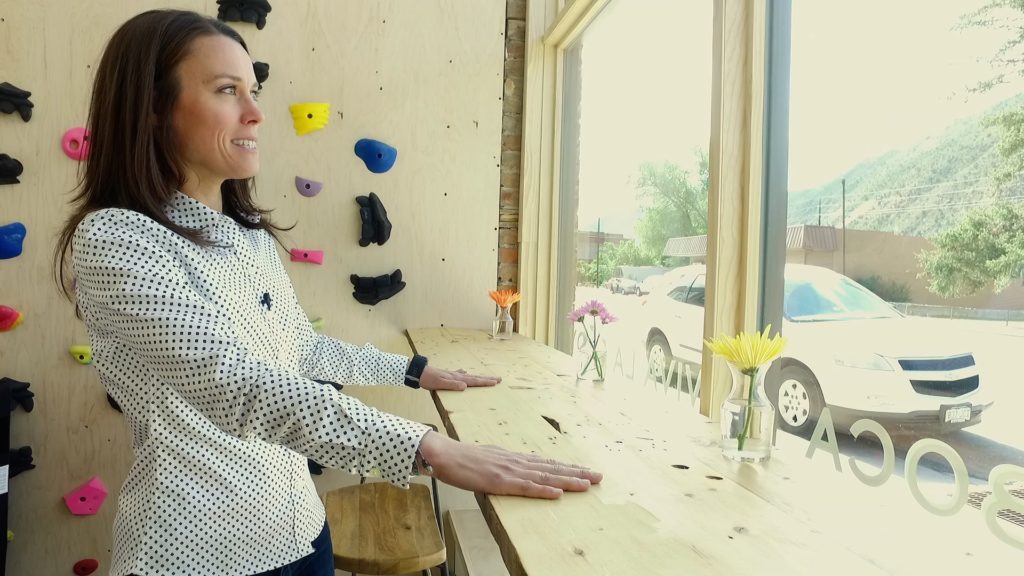
Imagine you achieve your dreams of opening a successful dental practice. The practice has a clean, modern feel. It’s just the way you imagined it, down to the last detail.
Patients talk about the gorgeous facility, kind and compassionate staff, and your quality clinical work. The community admires your success and the word is spreading.
You own a dental office you’re proud of, and within the first month, you already have hundreds of new patients. You are rapidly becoming one of the most respected professionals in your community.
But this best-case scenario gets even better.
You have the right team members, and your team trusts your leadership. The reputation you dreamt of is now a reality. You’re profitable and growing every month.
Many of our High-Level Consulting Clients experience this, even in the first weeks after opening their doors.
This scenario happened for Dr. Lauren, and it can happen for you. Watch Dr. Lauren’s excitement as she describes having 209 patients on her 4th day in practice.
Many doctors who follow the process in this article grow million-dollar practices in their first year. And 99 percent of those doctors had zero business experience before being trained in our Dental MBA program. Keep reading to the end to learn more about this amazing program.
When you properly build a dental practice from scratch, you actually decrease all the typical risks.
For the best-case scenario doctors, the process is predictable, and the doctor is in full control.
This is what can happen when dental startups are done the right way, and through this article, you’ll learn what “the right way” is.
The experience, you will find, creates a complete overhaul of who you are. You’ll go from associate dentist to the owner of a profitable new dental office.
Conversely, if you go about this process in the wrong way, you could end up bankrupt.
Sadly, this does happen in dentistry.
It may surprise you to read some of the stories below, which have been kept quiet for too long. You will learn about specific doctors who lived through this nightmare. More importantly, you will learn how to avoid those tragic outcomes that come with words like painful, scary, failed, and bankrupt.
Unfortunately, these heartbreaking stories can happen to good doctors, even when they try hard and believe they are making good decisions.
In the worst-case scenario, it’s like scoring a goal in soccer only to realize you scored on the wrong goal. You did all the hard work, but you get none of the results. In fact, now you have to work even harder to make up for the loss.
These doctors excitedly open their doors, but quickly realized the mistakes they made were irreversible. With an improperly trained team and knowing they were about to run out of money with no way to pay bills, they became stressed and sick.
In a situation like that, decisions start to feel like gasping for air as you wait for new patients who never arrive.
After months of this, instead of growing, you have to return to your associateship. The embarrassment is crippling. You work more hours as an associate than you do at your startup, all the while regretting your mistakes and knowing it’s too late to undo them.
Sadly, this story is too common. I frequently receive emails from dentists who tell me these stories as they express a desire to try again. The right way. They describe their regrets and say they wish they had known how to follow the process properly the first time.
And it’s not their fault.
Imagine the negative impact that the worst-case scenario would have on your career, your family, and your future. For these reasons, it’s imperative to start your dental practice the right way, from the first step to the last.
I recently interviewed a guest on my podcast about a doctor and her spouse who went bankrupt less than a year into the startup process. It’s a harrowing true story from a dentist in Chicago, caused by following bad advice from people who didn’t have the right experience with startups.
In this podcast, you will learn important questions to ask yourself before considering a startup:
And maybe the most important question:
You want someone with specific experience with at least 100 successful dental startup. Know this–someone will lead your startup. If you don’t have a clear, precise, defined vision laid out, you aren’t leading, someone else is. And even if that person cares about you or has dental practice startup experience in one area, such as a vendor, they may not make the best choices for you and your entire practice.
The good news is that what I describe here can be followed to open a dental office that thrives. When you read to the end, you will have learned the 13-Stages Process.
That is why I’m sharing this article with you. I want you to avoid the problems other doctors have endured from startups done the wrong way.
It’s uncomfortable but true that the worst-case scenarios could have been avoided with proper planning.
Understand this–learning how to start a practice requires skills never taught in dental school. Skills like real-estate negotiation, office design and floor-plans, demographics, legal concerns, and business ownership are crucial. But some doctors are tricked into thinking they can learn it all by reading a few Facebook posts and listening to some podcasts. That couldn’t be further from the truth.
The doctors who struggle shouldn’t be blamed. No one told them the right process. They didn’t start with the knowledge you are gaining right now. Those doctors were wrongly told the “fail-proof” process of opening a dental office that failed them.
The good news is, building a dental practice from scratch can be done well. With wildly positive, even mind-blowing, results. But if done wrong, all the hard work becomes your worst enemy. Let’s avoid this together.
Are you an associate dentist contemplating the path to practice
Opening a new dental practice is an exciting journey, but
Deciding between launching a new dental practice and acquiring an
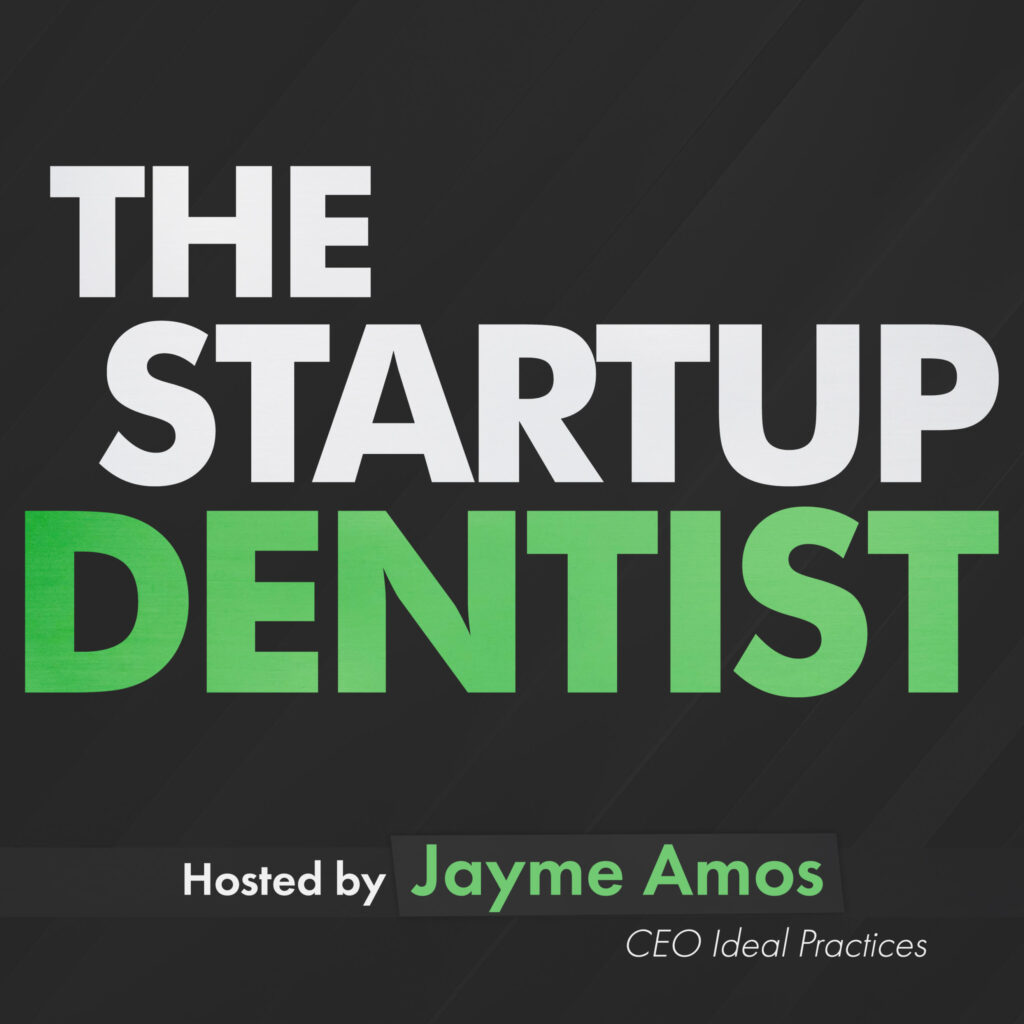
My passion is dental startups. I love seeing the impact a startup can have on your life, your freedom, your family, and your community. Seeing good doctors become accomplished practice owners is incredibly rewarding to me.
This article will show you over a dozen tips my team of consultants has seen work with hundreds of dental practice startups across the country. Study the research in this article—and again, bookmark this page. If you’re considering opening a dental office, this information will be invaluable.
Why am I telling you all this?
Ideal Practices accepts only a handful of applicants into our consulting program each month. Keep reading to learn how to become one of our high-level clients.
And even for the doctors not accepted into our consulting program, these concepts will work. I know this because Ideal Practices is the country’s top dental startup consulting firm, leading good dentists into successful practices that match their values. Another option is to join us for our two-day Startup Blueprint Course, taught by my team of experts and myself. Keep reading to learn how to apply for this information-packed course.
Now that you know you want a best-case scenario dental startup, let’s explore the next topics for your startup.

There are 4 stages that cause the worst elements of dental startup disasters. These are either the most expensive or the highest-impact topics. Thankfully, these 4 stages have avoidable problems.
But it is important to notice that each of these 4 stages also represents an irreversible decision.
When starting a new dental office, you get one shot. So, avoid the worst-case scenarios found in these 4 stages before you begin, and you will be much better prepared to move forward with your startup.
Your lease is the most important document in your new dental office. Without it, you don’t have a practice. But it surprises most doctors to learn that a lease is nearly always written to protect the landlord. Read that again.
A lease is nearly always written to protect the landlord, not the tenant.
The majority of dental office leases protect the landlord in a very unbalanced way. The practice, on the other hand, is only protected to the degree that the lease states those protections. In other words, if the lease is not customized for your version of a dental practice startup, you will be left unprotected.
If your lease is negotiated well, you can save hundreds of thousands of dollars upfront and over the course of your lease term. Done properly, you will get both.
Unfortunately, poor negotiations can put your entire practice investment at risk, literally allowing a landlord to prevent the sale of your dental practice. Imagine how problematic that would be if you get sick and need to find a buyer for the practice while you’re still providing for your family.
Will a shorter lease reduce your risk?
I’m asked this by doctors nearly every week. Once your lease is signed, you’re locked into the terms for a decade or more. Negotiated well, a longer lease can create powerful benefits for your startup business–in some cases to the tune of six figures.
A few times per year, our team receives emails from doctors we’ve never met who show us frightening notices from landlords, legally forcing them to move locations. Imagine the horrible financial and emotional costs. This is the result of poorly executed lease negotiations.
Don’t dabble in real estate negotiations.
Your lease will define your protections.
It’s true that doctors are capable of learning just about anything, but too many doctors attempt to learn about real estate with a trial-and-error method as they try to dabble in negotiations.
This can cause tremendous financial problems because lease signatures cannot be undone. Inside the thousands of variables in real estate negotiations, a single legal clause can negatively define your dental practice for decades.
One of our clients almost allowed himself to be talked into signing a lease agreement before we looked at it. Fortunately, he did the right thing and brought it to us. And we found a clause that said no hazardous materials would be used on the property.
Can you imagine? How could you run a successful practice without things like sharps, blood-soaked gauze, sterilizing agents, and disinfectants? Thank goodness we got that cleared up!
In lease negotiations, avoid the worst-case scenario. Have a team of dental startup consultants who will ensure that your lease negotiations reflect what’s necessary for the new dental office you’ve planned—for your vision to come to life. Remember, realtors are not your lease negotiators. Realtors find and show spaces; they should not negotiate legally binding leases worth hundreds of thousands of dollars.
Quotes and bids are not the top concerns. Hundreds of thousands of dollars will be budgeted for this stage, but your greatest risks have nothing to do with your contractor’s bid.
Before talking with any vendors – especially contractors – create your startup budget and dental business plan months earlier. To avoid the worst-case scenario, focus not on construction pricing, but rather on the construction agreement. Pricing means nothing if the agreement isn’t accurate.
The greatest stresses of construction are most often caused by issues other than the initial price quote. In dental practice construction, unmet expectations are nearly always the culprit.
Topics of greater concern than pricing include:
To avoid this, negotiate your construction agreements fully, months before the hammers start swinging. Negotiations should extend far beyond agreeing to a quoted price.
Agree to topics like these in writing, and do so months before starting construction.
By using this framework, you will avoid some of the most expensive mistakes in dental startups.
With a dental startup consultant on your side, your interests will be represented in contract negotiations.
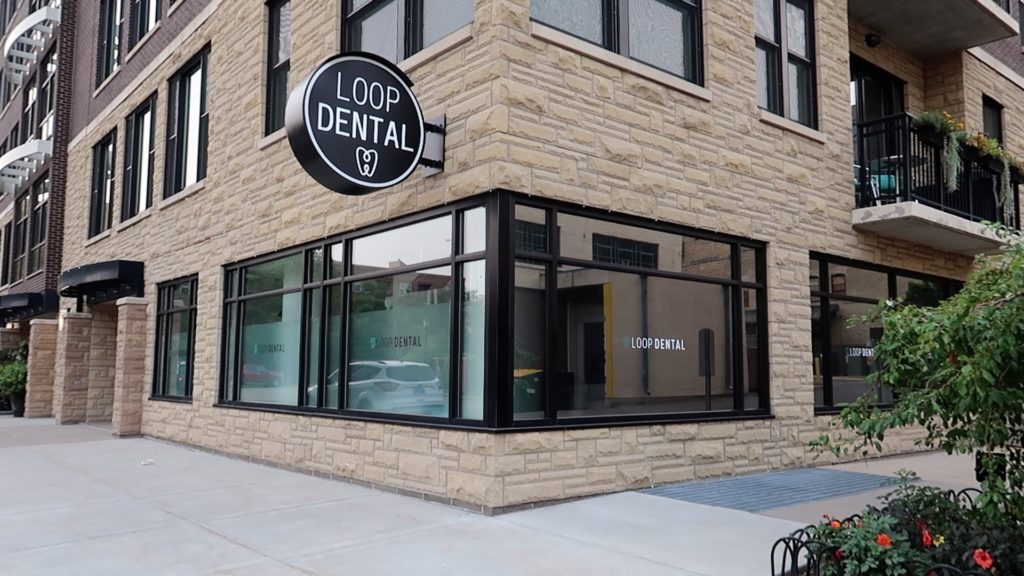
Your practice location’s demographics will impact your practice and income for your entire career.
THE DAMAGE OF DEMOGRAPHICS “REPORTS”
To avoid worst-case scenarios, remember that dental demographics “reports” do not create success; they simply present the realities of your area.
Demographics reports are a little like the data collected during a patient exam. The data reveals how a patient presents, not which treatment plan is best.
It’s the same with a startup.
The data only shows how the situation presents, not which dental business plan is best.
This is why 99 percent of demographics reports are worthless. Most of them come from online companies selling PDFs for hundreds of dollars. Data will not define your life. Don’t waste your money on worthless PDFs.
Too many so-called “experts” tell you dental demographics are your top concern. They’re wrong.
Think about it—when you look back on what you were happiest about in your career, will you be happy with your life because your demographics report had a good ratio? That’s a big NO.
I find it so unfortunate when doctors are tricked into thinking that “ratios” and “reports” create the plan for startups.
The “data” in that guy’s demographics report is simply an expensive PDF. Don’t let them convince you that a magic ratio is the solution to make you happy in practice ownership.
Here’s a shocker: With 25 percent worse demography ratios than what the “experts” suggest, my team recently helped a doctor open his startup. His name is Dr. Bryan.
Dr. Bryan will collect a million dollars in his first year – a million dollars of collections with no business experience. And he had a “bad” ratio.
His story is so powerful, a documentary was made to follow his process.
Just like in Dr. Bryan’s documentary, your startup will present with particular demographics data.
The better strategy is to create your Marketing & Growth plan, much like a treatment plan. This plan responds to the data, but it is not defined by it. It needs to be customized to your practice vision. This is not a cookie-cutter practice; this will be your dental startup to match your values and your goals in practice ownership.
Other dentists are incorrectly told that online demographics reports create success. But now you know, those online reports are not indicators of success. They are just expensive, data-rich documents.
To create a successful dental practice startup, link your demographics data to a fully developed Marketing & Growth plan. Successful startups incorporate demographics data, but they don’t succeed because of it.
Your Marketing & Growth plan should begin 4-12 months before opening. Too many doctors open their startups unprepared for effective marketing and growth.
Some even believe a few Facebook live videos will give them success. Not true.
Others are convinced postcards are the path to success. Who falls for a plan as risky and ineffective as that?
To avoid the worst-case scenarios, it is imperative that you have a full Marketing & Growth strategy. This will integrate your marketing, growth plans, hiring, and protocols into a single dental business plan.
Clients of Ideal Practices will develop their plan during our Startup MBA Program several months before opening. Surprisingly, some of the country’s fastest-growing startups are in areas with the worst demographics ratios. This is possible through the creation of a proper Marketing & Growth plan, customized for your demographics.
Don’t end up like the doctors who open their doors and struggle for years to fill their schedule. Those doctors will spend thousands of dollars each month to pay staff and keep the lights on while waiting for patients to come. But with a fully integrated Marketing & Growth Plan, you can be one of the practices that markets and grows well.
Most doctors get excited about the idea of opening a dental office. But too many accidentally slip into the irreversible problems in those 4 stages. Instead, have a dental startup that opens with hundreds of new patients.
To avoid the worst-case scenario, let’s put you on the right path from the beginning. The better road—the one that will support the life you want and the future you desire. We will put you on a predictable and stable path toward building a dental practice from scratch.
For a startup from scratch, your vision stage should be based on a proven plan for minimizing risk and maximizing your success. And planning your vision is the FIRST step in the 13 stages. Keep reading to understand this more fully.
Below you will learn the 3 Top Indicators that a dental office startup is headed on the right path.
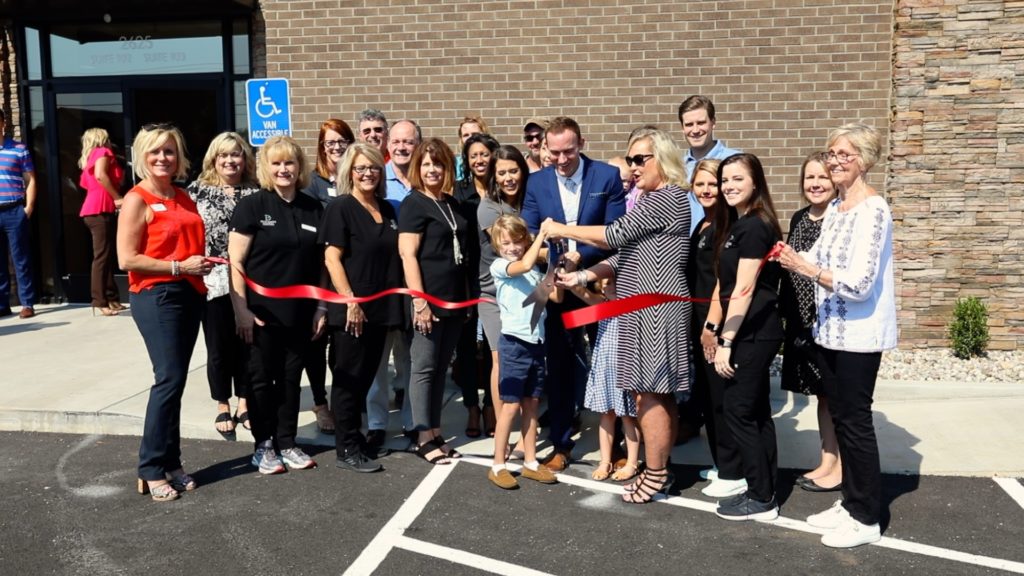
5 Essential Strategies for Startups
If you aren’t already familiar with our PROVEN 13 Stages Timeline. For a startup built from scratch, the 13 Stages includes everything you need to do–in the correct order–to achieve a highly successful practice.
Our team developed this process, and we follow it to help hundreds of dentists turn their dreams into reality.
But here’s the most important thing you need to know about the 13 Stages: the process must be completed in the correct sequence.
For instance, you should never apply for a dental practice startup loan without a detailed business plan. This will compromise your chances of getting the best loan and the best rate.
Furthermore, you can’t chase real estate and start calling realtors before you define your entire dental office startup business plan. This will lead to mistakes, costing you tens of thousands of dollars.
For example, one recent social media group shows a doctor’s post, in which he tells his painful story. He spent almost a year negotiating for real estate–only to discover the available parking wasn’t large enough for a dental office to get construction permits.
After investing a lot of money and time, he had to start all over precisely because he didn’t follow the proper sequence.
This was the direct result of “starting with real estate” during the wrong stage.
Imagine his wasted time and money. He could have been a dental practice owner a year earlier with thousands of dollars kept in his pocket!
That dentist could have accomplished so much more in the same amount of time. His career could have advanced further, and his family could have been provided for on a new level sooner—if he had avoided following social media advice for his startup.
Our most successful dental startups, even with doctors just months out of dental school with no business experience, understand the impact and importance of this process.
These doctors are the proudest of their practice and most profitable in the first year because they followed the right 13 Stage sequence.
Doctors who try to open a new dental office out of sequence will spend months undoing problems. Worse, many waste tens of thousands of dollars fixing mistakes caused by starting the wrong stage at the wrong time.
So, how do you start your dental practice the right way?
Start with Stage 1: Define your vision first.
If you get this stage right, the entire process works in your favor as you open a dental office.
For our High-Level Consulting Clients, this stage is called the Vision Call.
The Vision Stage is like a treatment plan for a patient’s full mouth reconstruction. You don’t figure it out as you go. You plan it before you begin.
My team and I have done this hundreds of times. This is the moment when you partner with our team for a 100 percent customized 2-3 hour strategy session that takes weeks to prepare for.
The Vision Call is the first significant step. It defines everything you will pursue in your startup process. In your Vision Call, the important pieces of a dental practice startup will be pre-planned and reverse-engineered.
Just like building a large treatment plan for a patient, there is a proper sequence. And you wouldn’t expect your patient to bring in a treatment plan he developed by studying WebMD, would you? NO! You went to dental school. You have the experience. YOU are the expert and understand how to customize a plan based on your patient’s needs.
A startup is a lot like that.
The right path is based on a proven sequence, customized for your vision. No book, website, or social media advice will be able to customize your plan by reverse engineering your vision. The BEST way to ensure success is to go to an expert. Better yet, partner with a team with proven success for over 100 dental startups. A team like Ideal Practices.
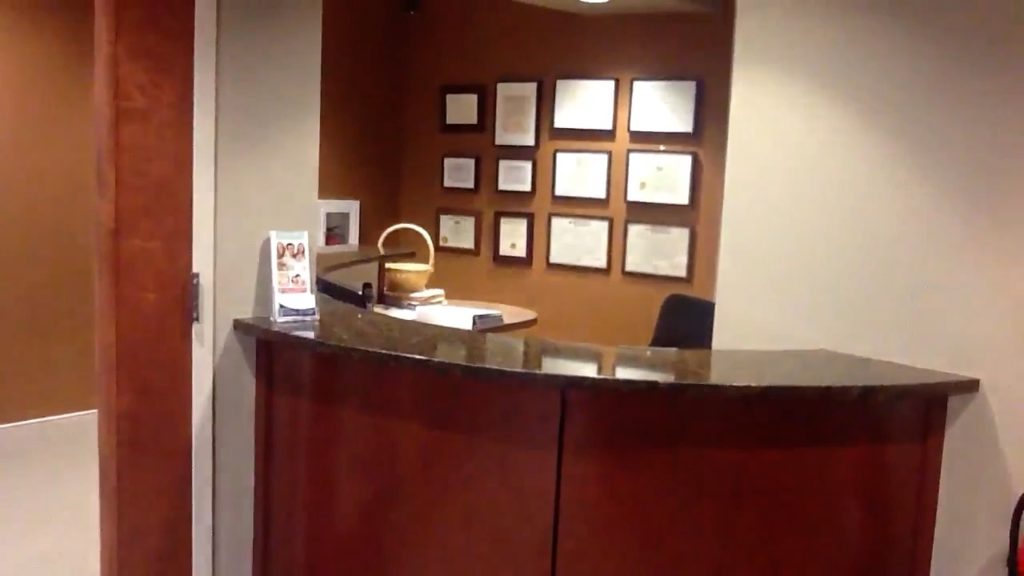
Never make the mistake of following advice from equipment salespeople or designers.
Unfortunately, the equipment salespeople and designers are trained to have you buy more from their company. They call their other services “free,” but we all know there is no such thing.
The hard truth is this: equipment salespeople have never opened startups—they’ve simply sold stuff to doctors. But you need more than advice from people who sell chairs.
Find an unbiased guide – not one who is selling you chairs.
The right way to plan a vision for your dental practice startup is so much more than equipment, designs, or websites.
Instead, I want you to pre-plan your reputation. Your legacy. Your professional fulfillment. Your income. The future impact you want to make on your community, your team, and your family.
We will help you define your Ideal Patients and build a marketing plan to fill your practice with them.
The best startups have a real plan customized to fit their vision.
This is why Stage 1 is so important to your future in practice ownership. Defining your vision is the first step to real success.
Below are the 9 most common questions that associate dentists ask about building startups from scratch:
These are all valid questions.
But what if those are the wrong questions?
Each of those questions begins with “how.”
With a dental startup, you will avoid risk and cost when you avoid the “how” questions.
This is a little like a patient asking “how” to place an implant.
Let’s be blunt. There is no online article or Facebook group that could educate a patient on how to safely place an implant.
Agreed?
An implant happens one time. And it is technique-sensitive. Patients who spend countless hours researching implants don’t improve anything about their oral health.
What would help that WebMD patient?
In reality, for a patient to fully understand “how” to place the implant, he would need to go to dental school…then care for hundreds of patients…then attend implant-specific continued education.
WebMD patients seem to think that asking “how” somehow helps their progress.
But does that get them results? Or does it just bring up more questions?
No matter how many questions the WebMD patient asks, they still can’t place an implant with the same success of a trained clinician.
For any big, one-time procedures, learning “how” is irrelevant to progress. And unfortunately, all of their WebMD research may not even benefit that patient.
Why?
Because it is technique-sensitive…
based on experience…
and customized —not WebMD articles.
That’s what it’s like when opening a dental practice.
Just like the doctor who wasted time and money on a building with parking problems. He thought the first question was, “How do I negotiate real estate?” He followed social media advice and started in the wrong stage.
His Facebook group research missed the horribly unforeseen issue with not enough parking.
This will cost him multiple months of time and tens of thousands of dollars in errors, legal bills, lease problems, and lost income.
What a waste.
For a from-scratch practice, there are thousands of potential issues like this. You can avoid these when you open a startup from scratch. But until you have hundreds of experiences, the “how” simply feels like reading WebMD for an implant case.
If he had an experienced advisor on his side, he could have avoided an expensive disaster, much like a patient who chooses to have a dentist place an implant, instead of trying to learn “how” on WebMD.
By asking “how” for a dental startup, the assumption is that all the necessary knowledge can be learned before the practice opens.
“HOW” MARKETING: For example, should your marketing be based on a friend’s suggestions…or on hundreds of private-practice startups? A few random marketing ideas assembled from a podcast is a pretty risky way to grow a dental practice. You get one marketing budget, one time. Reduce your risk by avoiding the advice of someone who opened one startup…one time…in one town…for a different patient population, over a year ago. That’s a little like a patient committing to a full-mouth reconstruction with a doctor who never restored a tooth. Not so smart, right?
“HOW” EQUIPMENT: Some doctors will ask “how” to negotiate with equipment companies. If you have negotiated tens of millions of dollars of dental equipment with dozens of companies, you will have massive leverage over the equipment companies. But that takes a decade to accomplish! Sadly, a few online articles don’t teach you how to avoid hundreds of thousands of dollars of missed opportunity.
Remember Dr. Bryan from the Startup Practice Documentary? He saved $300,000 on equipment alone!
Equipment decisions are worth hundreds of thousands of dollars. Trying to learn it all at once or as you go is a high-risk activity.
You get one chance to do properly.
“HOW” DEMOGRAPHICS: Your choice of demographics will affect your entire career. And you don’t get to change it once your practice opens. Should your location choice be based on dental demographics that involve simple calculation and a few pages of an expensive PDF? Should it be based on the advice from random people on Facebook?
I often see people give demographics advice online who haven’t even opened a dental practice. Be careful asking for social media opinions…they’re never customized.
Pursue demographics for your new dental office that are customized for your vision, not a cookie-cutter solution from an overpriced PDF.
If the demographics you use to make your location decision are customized for your vision, you will have a clear path to:
Let’s get you the predictable results by avoiding the “How” questions for your from-scratch practice.
ONE SIMPLE SHIFT:
There’s an incredible amount to know about dental office startups.
I want to show you how to make one simple shift, away from the “how” questions.
When you shift the word “HOW” – just slightly – you get a tremendous advantage with your startup.
If you’re anything like most associate dentists, you probably feel like it would be easier if there were two of you.
Learn if having a dental partner in your startup is right for you.
Agreed?

Let’s double you right now. We’ll create a solution to “double-you” in 3 quick steps:
First…
The word changes to “WHO.”
Instead of asking how to start a dental practice, ask who can help you.
Just like a patient who needs an implant shouldn’t ask “how?” but “who?”
If you want to get your startup right the first time, you will have less risk—and better success—when your plan is based on the advice and experience of someone who has opened hundreds of dental practice startups.
That’s where Ideal Practices comes in.
Change your “HOW” questions to “WHO” questions.
Find WHO is right for you.
Don’t pursue a startup alone. Get proven guidance. Follow a proven process.
The team of experts at Ideal Practices may be right for you. Maybe not.
Our team only accepts six client applicants into the consulting program each month so that each doctor we serve gets one-on-one attention for more than a year through the process.
And this is why banks fund what Ideal Practices charges.
The banks know how complicated a dental startup is. They see how the experience of hundreds of startups helps regular doctors create incredible successes.
The learning curve is steep. To reduce your risks and costs while helping you quickly reach profitability, you need experience.
Not experiments.
Think about everything that goes into opening a dental practice.
There is so much!
It involves funding, real estate, equipment, marketing, hiring, demographics, and much, much more. Every step involved in a dental startup can take a career’s worth of experience. That’s why our consultants are specifically trained in each of these areas.
Don’t become someone’s experiment.
Your entire career is ahead of you!
Your family, your reputation, your income, and your pride in practice ownership will be affected by this process, so let’s get it right.
You need to focus on what really matters—your career in serving patients the right way.


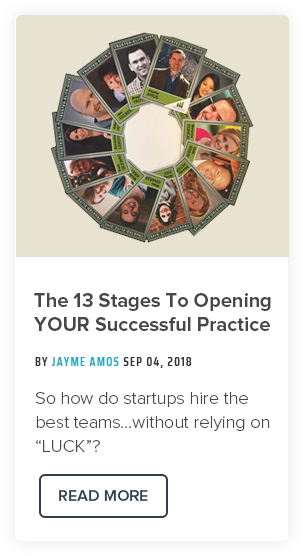
The 13 Stages represents the major milestones of opening a successful practice. While these 13 steps are digestible, the truth is, it actually takes thousands of stages to achieve your goals. But if you’re curious about some of the essential steps, here are five that stand out in dental success stories:
If you follow these 5 essential steps, you’ll be much closer to the dental practice you desire.
Here’s to you and your highly successful future!
Jayme
Learn more about our Dental MBA Program and many other important topics taught by our team of experts.
Apply now to reserve one of the last few seats in our next Startup Blueprint Course.
Privacy Policy: We hate SPAM and promise to keep your email address safe.
 Get a 1-on-1 Strategy Call
Get a 1-on-1 Strategy Call
 Speak with the #1 Startup Consultant in Dentistry
Speak with the #1 Startup Consultant in Dentistry
 Find Answers to Your Top Questions
Find Answers to Your Top Questions
 Avoid the Mistakes and Risks of Other Startups
Avoid the Mistakes and Risks of Other Startups
 Learn How Hundreds of Associates Used this Process
Learn How Hundreds of Associates Used this Process
 Get Customized Clarity for Your Startup Ideas
Get Customized Clarity for Your Startup Ideas
 Demographics, Real Estate and Marketing Topics
Demographics, Real Estate and Marketing Topics
 Discuss the Step-By-Step Startup Method
Discuss the Step-By-Step Startup Method
Ideal Practices is the leading consulting firm for startup dental practices. The consulting team guides dentists to open successful startups across the country. This website is a free resource founded by Ideal Practices.
As part of our passion for global entrepreneurialism, we fund 10 new startup businesses in 3rd world countries every time a client opens a new practice. By the year 2024 this effort will empower 4000 new entrepreneurs worldwide.
Get a 1-on-1 strategy call with the top Startup Strategy Advisor in dentistry.
Learn how startups work in dentistry.